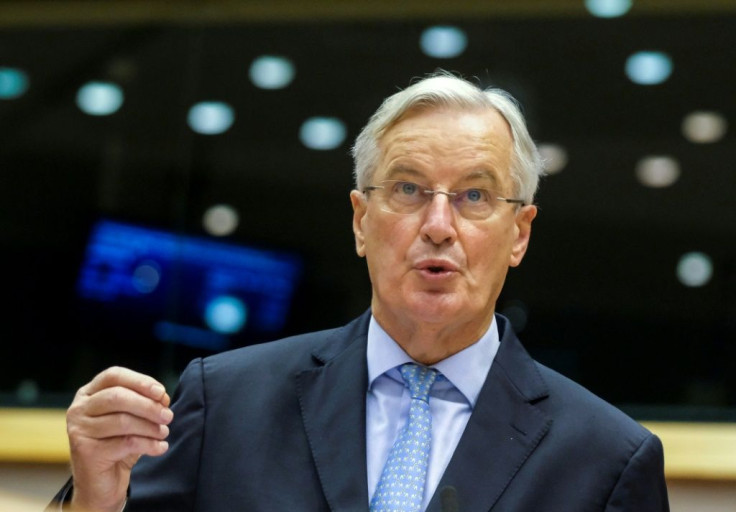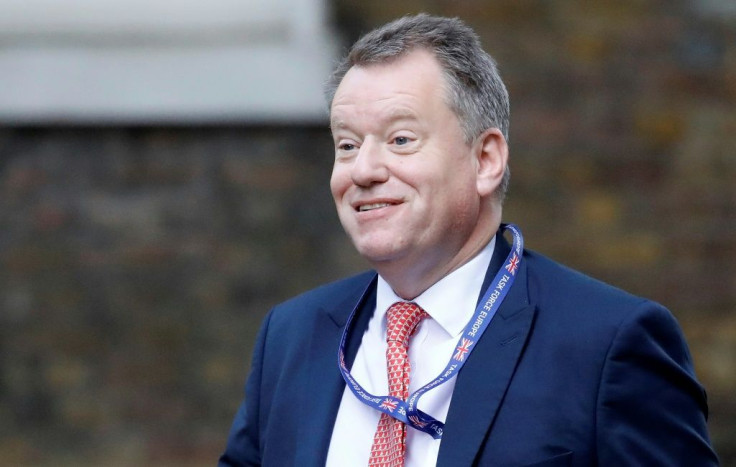UK-EU Talks Resume As Clock Ticks Down To Brexit Deadline
Britain and the European Union launched an intensive round of Brexit talks on Thursday, vowing to work round the clock to seal a trade deal in the little time left.
EU chief negotiator Michel Barnier arrived in London after Britain ended days of threats to abandon the long-running negotiations and instead agreed to redouble efforts to avert potential economic chaos at the end of the year.
"Time is now in very short supply. Both sides do recognise that time is extremely short," Prime Minister Boris Johnson's official spokesman told reporters, previewing what he called "intensified negotiations".
In a joint document, Britain and the EU said Barnier and UK negotiator David Frost would meet through the weekend and their teams would continue every day beyond that if necessary to bridge differences, before a post-Brexit transition period ends on December 31.
However, the 10-point memo cautioned that "nothing is agreed in these negotiations until a final overall agreement is reached".
Key sticking points remain so-called "level playing field" provisions to ensure Britain does not try to retreat from the EU's environmental or labour standards, how to arbitrate future differences, and fishing rights.

Before leaving Brussels, Barnier briefed leaders in the European Parliament about the upcoming talks. "As has been the case throughout the negotiations, transparency and unity are key. The EP will have its say on any deal," he tweeted.
The EU still hopes to clinch an accord by the end of this month. But any deal will need parliamentary ratification on both sides of the Channel before the end of the year, increasing the pressure on the negotiators to craft a legally binding text in the days ahead.
The breakthrough Wednesday, which pushed the pound to six-week highs on currency markets, came hours after Barnier said that an agreement was "within our grasp" if both sides compromised.
An EU summit last week had said any compromises would have to come from Britain, angering Johnson's government which then threatened to walk away.

Barnier also said the 27-nation bloc would proceed on "the basis of legal texts", satisfying British demands for an intensification of the process to finalise a treaty.
Britain left the EU in January but remains bound by most of its rules and regulations until the end of the year under its divorce terms.
Johnson's spokesman said that if the talks failed, the UK would end the transition on a barebones arrangement with the EU governed by World Trade Organization quotas and tariffs, "and will prosper in doing so".
However, such a "no deal" Brexit scenario in a little over two months could see huge disruption to EU-UK business, just as both sides grapple with the economic havoc of the coronavirus pandemic.
Anxiety has been mounting about the likely repercussions of that, with European fishermen notably warning they face ruin if deprived of access to Britain's rich waters.
On the UK side, businesses complain the government is failing to prepare on an array of fronts. Even with a trade deal, British companies will still need to wade through reams of new red tape to ensure their goods comply with EU standards.
That applies especially to road hauliers transporting goods to France through ports in southeast England, who will need a special new permit to enter the county of Kent to prove their cargoes are EU-compliant.
In a bid to prevent EU-bound trucks from snarling up the region's roads from January 1, the government Thursday submitted new legislation to enforce fines on lorry drivers who enter Kent without the permit.
While rejecting an offer to extend the EU transition, London has shown more flexibility with other trading partners.
It has agreed a provisional trade deal with Norway, Switzerland, Iceland and Liechtenstein to ensure continuity after January 1, pending a permanent pact, sources said Thursday.
© Copyright AFP {{Year}}. All rights reserved.





















